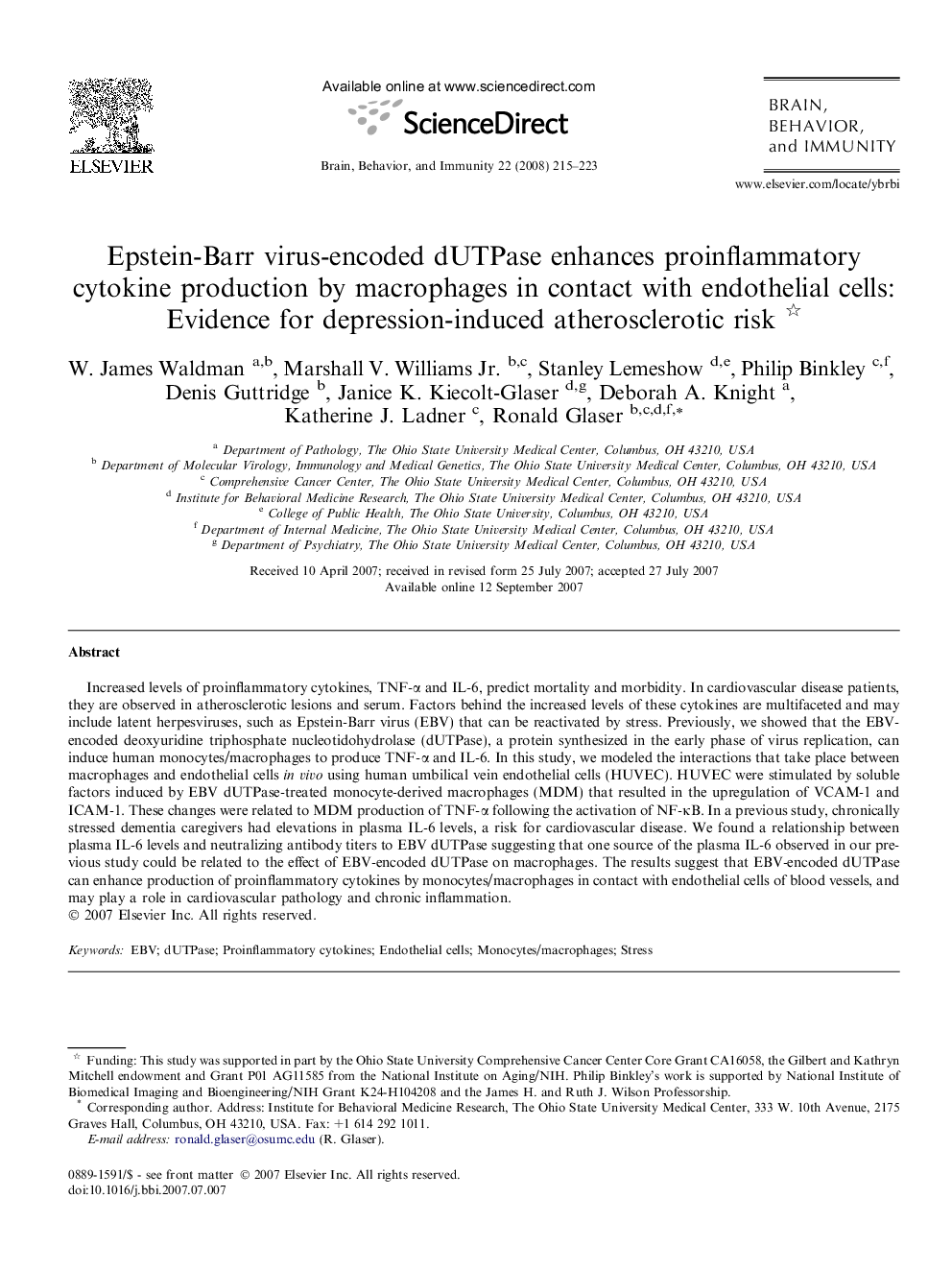| Article ID | Journal | Published Year | Pages | File Type |
|---|---|---|---|---|
| 923219 | Brain, Behavior, and Immunity | 2008 | 9 Pages |
Increased levels of proinflammatory cytokines, TNF-α and IL-6, predict mortality and morbidity. In cardiovascular disease patients, they are observed in atherosclerotic lesions and serum. Factors behind the increased levels of these cytokines are multifaceted and may include latent herpesviruses, such as Epstein-Barr virus (EBV) that can be reactivated by stress. Previously, we showed that the EBV-encoded deoxyuridine triphosphate nucleotidohydrolase (dUTPase), a protein synthesized in the early phase of virus replication, can induce human monocytes/macrophages to produce TNF-α and IL-6. In this study, we modeled the interactions that take place between macrophages and endothelial cells in vivo using human umbilical vein endothelial cells (HUVEC). HUVEC were stimulated by soluble factors induced by EBV dUTPase-treated monocyte-derived macrophages (MDM) that resulted in the upregulation of VCAM-1 and ICAM-1. These changes were related to MDM production of TNF-α following the activation of NF-κB. In a previous study, chronically stressed dementia caregivers had elevations in plasma IL-6 levels, a risk for cardiovascular disease. We found a relationship between plasma IL-6 levels and neutralizing antibody titers to EBV dUTPase suggesting that one source of the plasma IL-6 observed in our previous study could be related to the effect of EBV-encoded dUTPase on macrophages. The results suggest that EBV-encoded dUTPase can enhance production of proinflammatory cytokines by monocytes/macrophages in contact with endothelial cells of blood vessels, and may play a role in cardiovascular pathology and chronic inflammation.
